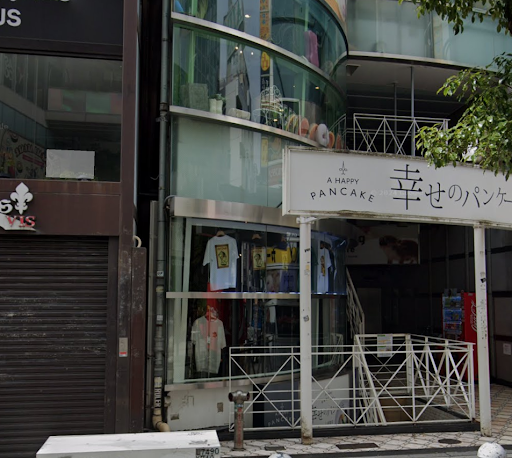
After greatness, a certain silence arrives.
It is not cheering. It is not mourning. It merely waits.
When Kentarō Miura, the legendary author of Berserk, passed away in 2021, that silence quietly spread around his daughter, Yuka.
Most people didn’t expect her to speak. Some didn’t even want her to.
And when she did break the silence, through fiction, people questioned whether it was truly her voice. Was it her own? Or just her father’s echo? Was it grief that spoke… or was it opportunism?
These questions still linger today.
But Yuka Miura agreed to this interview on one condition:
“Let’s not talk about Berserk the entire time.”
At the very least, she chose to appear.
We met at A Happy Pancake, a trendy café tucked between glass towers in Osaka’s Shinsaibashi district. I arrived early, as instructed, and ordered something called a buttered hojicha latte, though I had no idea how to pronounce it.
Yuka arrived twenty minutes late. She had no publicist, no translator, none of the guarded professionalism I’d imagined. She wore an over sized sweater that read SHRINE OF SUFFERING in cracked Helvetica. From her small tote bag, something that looked like a box of colored pencils peeked out.
She wasn’t alone.
Following her was a tall, awkwardly polite American man in his thirties, dressed in a crumpled Junji Ito hoodie and holding a half-finished matcha in a plastic cup from a convenience store. He didn’t introduce himself. He just gave a small bow and smiled like someone trying very hard not to spill anything sensitive.
“This is Alex,” Yuka said as she sat down. “He protects me from the internet.”
She said it like a joke.
But neither of them laughed.
“So,” she said, “this is what you’re really here to ask, right? ‘Are you Miyu? Is your father the evil wizard? Who are you, really?’”
But Yuka Miura has no interest in defending her right to exist.
“All of my characters are myself,” she says. “That’s how we make characters. Even the ones we dislike. Maybe especially those.”
I ask her: does that include the demon queen in Volume Four?
“Oh, absolutely. She’s the spoiled girl who drinks too much at a party and needs someone to take her home. Nobody wants to admit they’re Obizu. So we go home, go to sleep, and hope no one remembers.”
“Everyone always asks, ‘Which one is you?’ Like there has to be one character that’s my secret diary. But I don’t write like that. I don’t transpose, I fragment. Miyu isn’t me. She’s the part of me that wants to vanish. The part that finds comfort in the idea of being forgotten.”
“And my dad’s not the wizard. To him, magic was cheating. So no, that’s not him. The wizard is me. Or… maybe an older version of me. The part of me that wants to control the ending, even if it means breaking everything.”
“If I only wrote about myself, it wouldn’t be fantasy. It would be trauma tourism. And who wants to read that?”
Her Kannazuki Series was never meant to chase after her father’s legacy.
“That’s why I started writing,” she says. “It was therapy. Private notes. I never meant for it to go public.”
But somehow, from those quiet beginnings, it found readers across the world.
Suspicions followed. Accusations of plagiarism surfaced quickly.
Yuka didn’t argue.
She knew that grief makes people look for villains.
“If blaming me helps, then blame me,” she says. “They can call me names. It’s fine.”
But being put in a box, that, she won’t tolerate.
She knows her father’s shadow hovers over her story.
And she knows they were nothing alike.
“He had to create. He couldn’t help it. For me, I can write all day and still sleep fine. Even if I have to rewrite something, I won’t hate myself for it.”
She sketches sometimes. Not professionally. Not for legacy. Just online, with friends, as play.
“It’s amazing,” she says, “watching people try different styles and interpretations.”
And despite all her distance, remnants of grief remain.
She says her father probably wouldn’t have liked her work.
Not out of malice. Just… difference.
“He didn’t really like words. Thought they were too restrictive. His sketches, he said, could tell a thousand stories at once.”
She says the distance between them was never enough to share what truly mattered.
“There is never enough time.”
When I ask how she wants to be remembered, she doesn’t mention being a writer. She doesn’t even bring up her books.
“My cooking. I make really good soba.”
In a world obsessed with permanence, Yuka Miura prefers something shared, something warm, something that disappears the moment it is complete.
Her fiction may endure. But she doesn’t cling to it.
“Can we ever truly see one another?” she asks. “I don’t think so. But we can express ourselves through fantasy, or art, or a good meal. Even if people don’t understand you, they can still enjoy what you created.”
There are stories she will never share. Ones written only for herself. She guards them quietly. She owes them to no one.
Collaboration? Maybe.
If the artist fits. If the vision aligns. But there’s no hunger in her voice. Yuka Miura doesn’t belong to her father’s myth. She doesn’t belong to your expectations. She belongs to the work, to the words, and to the world she’s building on her own terms.
You can read her. You can question her.
But you cannot claim her.
She was never yours to begin with.

